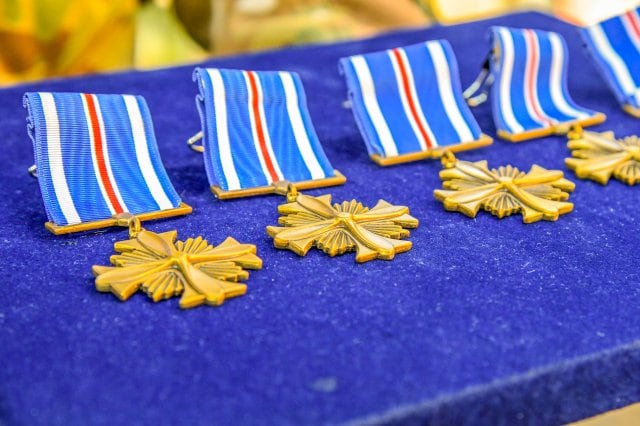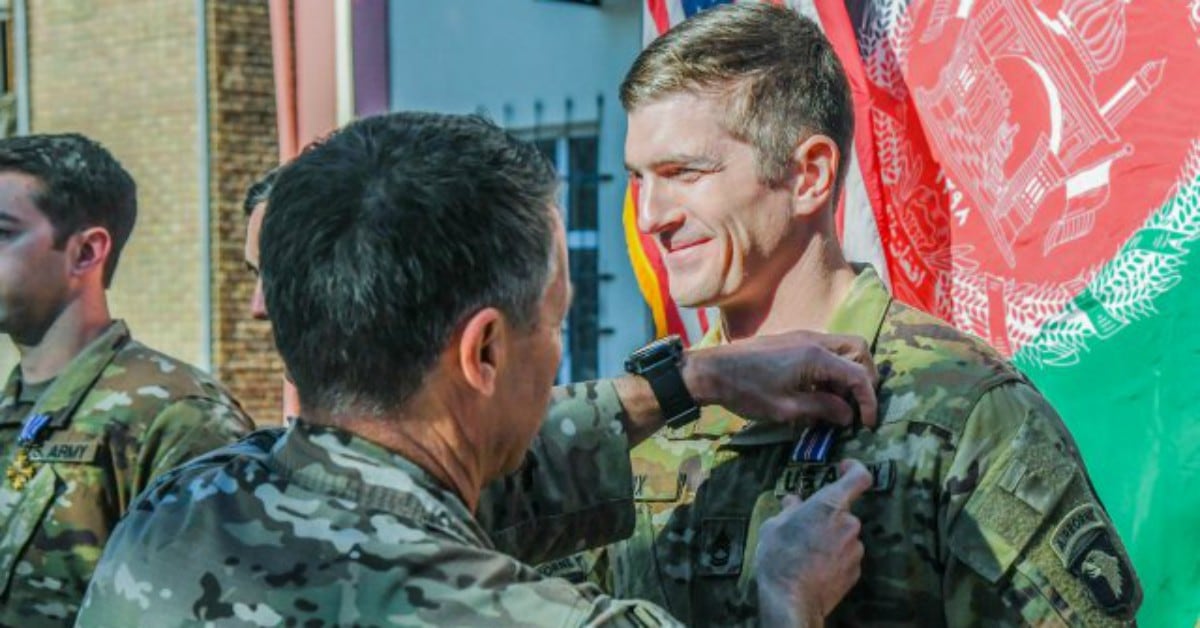Five members of the 101st Airborne Division have received the Distinguished Flying Cross for rescuing a wounded soldier from a battlefield in Afghanistan and returning to save another even though their aircraft was damaged.
Capt. Benjamin Krzeczowski, Chief Warrant Officer 2 Jonathan Cole, Sgt. 1st Class Andrew Six, Sgt. Armando Yanez and Cpl. Emmanuel Bynum were given the award at a Jan. 5 ceremony held at Resolute Support Headquarters in Kabul, Afghanistan.

“You are a special breed,” said Col. Matthew R. Weinshel told the soldiers during the medal ceremony, according to an Army release. “You’re the only airframe we put out there with absolutely zero protection in the worst possible conditions. Nonetheless, you go in each and every time and you do your job professionally, competently and with valor, and I am proud of you all.”
The Distinguished Flying Cross is awarded to service members for heroic or extraordinary achievement in support of combat operations while in aerial flight.
On July 12, 2018, the five soldiers were part of the DUSTOFF 24 medevac crew attempting to rescue a wounded soldier.
As they landed their HH-60 Black Hawk helicopter, they came under small-arms fire.
Six, a combat medic, and Bynum, a helicopter repairer, provided security for the Black Hawk while Yanez brought the wounded soldier onboard. Yanez, also a combat medic, returned to the aircraft with more soldiers for backup while the wounded soldier was loaded on board.
Then as the Black Hawk was leaving the site, Bynum saw another soldier fall after taking fire. Pilot Krzeckowski maneuvered the helicopter behind a building and landed so the team could rescue the second soldier.
They took off again, and then pilot Cole reported damage to the aircraft and advised landing as soon as possible. Gunfire had ripped into the helicopter’s hydraulic system modules, and fluid was leaking.
With both patients in critical condition, Krzeckowski decided to keep flying and get them to a medical facility, according to the release.
“The flight was my third or fourth mission with the medevac crew,” Bynum said at the ceremony. “The training I received helped me to be situationally aware of the surroundings of the landing zone.”
“As a medic in the Army, you are expected to handle situations such these,” Six said. “It’s no different from any other job that operates within a high-stress environment.”




